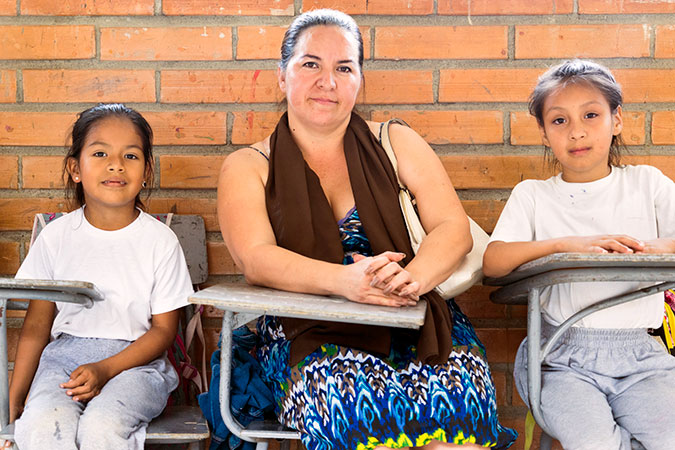From where I stand: “Women have a right to have an income of their own”
Marianela Galarza, from a rural community called Flor y Selva in Cuenca, Ecuador, believes that women must have sustainable income so that they are financially independent. The community is in one of the main cacao producing regions of Ecuador, but without a processing facility, the income is low, and women must leave their families to go to the city to work in the chocolate factories in near cities.Date:

I live in a beautiful place called Flor y Selva, in the Molleturo parish, in the southern part of Ecuador. We have fertile land, a beautiful river and fresh air.
Our community has about 100 families, and we are the main producers of “cacao arriba” and “fino de aroma” cacao beans; it’s our main source of income.
For ten years now, I am the leader of my community. I was born into a family that prioritized my education, and I could speak up for my community. Today, finally, we have sewage, potable water, telephone, public transportation and a good school for the children. But I am hoping that we can expand the water project so that everyone can have good quality water in their homes.
I have another dream—to build a chocolate factory in Flor y Selva, so that the women who grow the cacao can work right here, close to their homes and children. We have the raw material, but we do not have the machinery and infrastructure to process the cacao beans. This will improve women’s lives and give them sustainable income.
Women have the right to be safe from violence, and the right to have an income of their own. If we depend on our husbands, we become submissive. We do a lot of work in the cacao plantations, we must be able to manage our own resources.
In my community, many women do not know their rights. When they face violence, they do not know where to report, where to get help. When I heard about the Safe Cities project that the Municipality in Cuenca is designing with UN Women, I went to there to attend the workshop on women’s rights.
Now I am thinking how to reproduce this workshop in my community so that women can communicate about their needs, say what they think and feel, and share knowledge. We have started a network of women. We learn new skills, such as how to make bread and paint our nails, and we talk. For us to have a better life, we need to have conversations within our families and communities.”
Marianela Galarza, a 42-year-old rural woman leader from Ecuador participated in UN Women’s Safe Cities Cuenca project workshops. To date, 27 cities around the world, including Quito, Ecuador, are part of UN Women’s Global Flagship Programme Initiative, Safe Cities and Safe Public Spaces, supported by over 15 donors from public and private sectors. Galarza’s story relates to Sustainable Development Goal 8, which aims to promote sustained, inclusive and sustainable economic growth, full and productive employment and decent work for all, SDG 9’s goal to develop quality, reliable, sustainable and resilient infrastructure, to support economic development and human well-being, with a focus on affordable and equitable access for all, as well as SDG 11 which aims to make cities and human settlements inclusive, safe, resilient and sustainable.